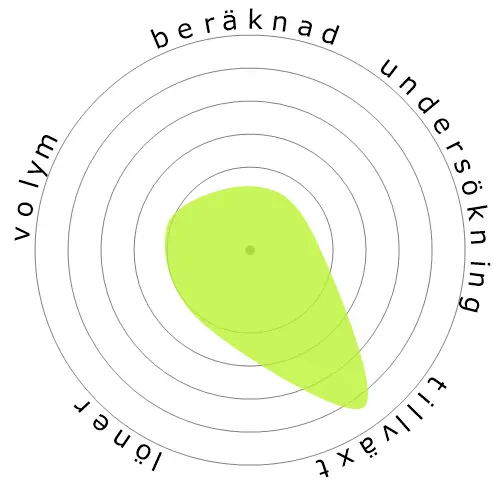Tolkar och Översättare




Personer tittade också på
Beräknad automatiseringsrisk
Hög risk (61-80%): Jobb i denna kategori står inför ett betydande hot från automatisering, eftersom många av deras uppgifter lätt kan automatiseras med nuvarande eller nära framtida tekniker.
Mer information om vad detta betyg är, och hur det beräknas finns tillgängligt här.
Användarundersökning
Våra besökare har röstat för att det är troligt att detta yrke kommer att automatiseras. Detta bedömning stöds ytterligare av den beräknade automationsrisknivån, som uppskattar 70% chans för automation.
Vad tror du är risken med automatisering?
Vad är sannolikheten att Tolkar och Översättare kommer att ersättas av robotar eller artificiell intelligens inom de närmaste 20 åren?
Känsla
Följande graf inkluderas där det finns en betydande mängd röster för att ge meningsfull data. Dessa visuella representationer visar användaromröstningsresultat över tid och ger en viktig indikation på sentimenttrender.
Känsla över tid (kvartalsvis)
Känslor över tid (årligen)
Tillväxt
Antalet 'Interpreters and Translators' lediga jobb förväntas att öka med 2,3% till 2033
Total sysselsättning och uppskattade jobböppningar
Uppdaterade prognoser beräknas 09-2025.
Löner
I 2023 var den medianårliga lönen för 'Interpreters and Translators' 57 090 $, eller 27 $ per timme.
'Interpreters and Translators' betalades 18,8% högre än den nationella medianlönen, som låg på 48 060 $
Löner över tid
Volym
Från och med 2023 var det 51 560 personer anställda som 'Interpreters and Translators' inom USA.
Detta representerar cirka < 0,001% av den anställda arbetskraften i hela landet
Sagt på ett annat sätt, runt 1 av 2 tusen personer är anställda som 'Interpreters and Translators'.
Arbetsbeskrivning
Tolka muntligt eller teckenspråk, eller översätt skriftlig text från ett språk till ett annat.
SOC Code: 27-3091.00


Kommentarer
Leave a comment
Automation can incredibly speed up the process of translation but human element is a must. Also, in terms of transcreation and localisation for different contexts etc. the AI does not have enough understanding of culture and context regardless of the input.
No not a chance.
Ps : Google translate is still funny, I tried translating 1 sentence into like almost all languages and the sentence was not even close to what I had originally typed. I don't think it's gonna get better
However, we humans are still needed to correct the sometimes amazingly stupid solutions the machine offers when the text is completely new and there are no precedents. Anyway, I would not advise my daughter to choose this profession, except when she likes text editing...
Also interpreters and translators are two very different jobs with different automation risks, I don't think they should be together in one category.
Lämna ett svar om detta yrke